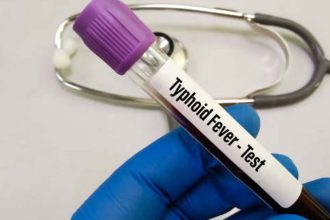Dogs are often regarded as man’s loyal companions, possibly the first animals humans domesticated as pets. While these animals offer numerous benefits and companionship, it’s essential to recognize that they can also pose significant health risks under certain circumstances.
Health Risks from Dog Bites
Dog bites can lead to the transmission of various diseases caused by bacteria, viruses, parasites, and fungi. When a dog bites, harmful bacteria can enter the human body, potentially causing serious illnesses such as tuberculosis, splenic fever, scarlet fever, and diphtheria. Among the most concerning pathogens is Salmonella Enteritidis, which can lead to gastrointestinal diseases, as well as typhoid fever.
Fungal Infections from Dogs
In addition to bacterial infections, dogs can transmit fungal diseases such as ringworm to other animals and humans. This zoonotic disease can easily spread, particularly in environments where pets and people interact closely.
The Threat of Rabies
One of the most dangerous diseases associated with dog bites is rabies. This viral infection is typically found in the saliva of an infected dog, often referred to as a “mad dog.” Rabies can be transmitted through a bite from both stray and pet dogs, making it crucial for pet owners to ensure their dogs receive an anti-rabies vaccine every three years. Furthermore, pet dogs should be kept away from individuals infected with tuberculosis, scarlet fever, measles, and mumps, as these illnesses can also be transmitted to humans.
Measles and Mumps Transmission
Dogs can contract measles and mumps, which can potentially spread to humans. This highlights the importance of keeping a close eye on the health of pet dogs and ensuring they are vaccinated against common canine diseases to prevent cross-species transmission.
Tick-Borne Illnesses
Another health concern is tick-borne diseases, which can originate from Rickettsia that thrive in dogs. These infections can be transmitted to humans through tick bites and can lead to various health complications.
Preventing Disease Transmission
Many diseases associated with dogs can be transmitted through direct contact or food contamination. Children, in particular, are at a higher risk due to their tendency to play with dogs. To mitigate these risks, it is vital to provide regular anti-rabies vaccinations for dogs and utilize disinfectant medications to maintain a hygienic environment.
Additionally, keeping pet dogs away from individuals suffering from contagious diseases like tuberculosis, scarlet fever, measles, and mumps is essential. Infections can be contracted by dogs in the vicinity of infected individuals, which they may then spread to other family members.
While dogs are beloved companions, understanding the potential health risks they can pose is critical. By taking preventive measures, such as vaccinations and proper hygiene practices, pet owners can help ensure the safety and health of their families and their furry friends.




